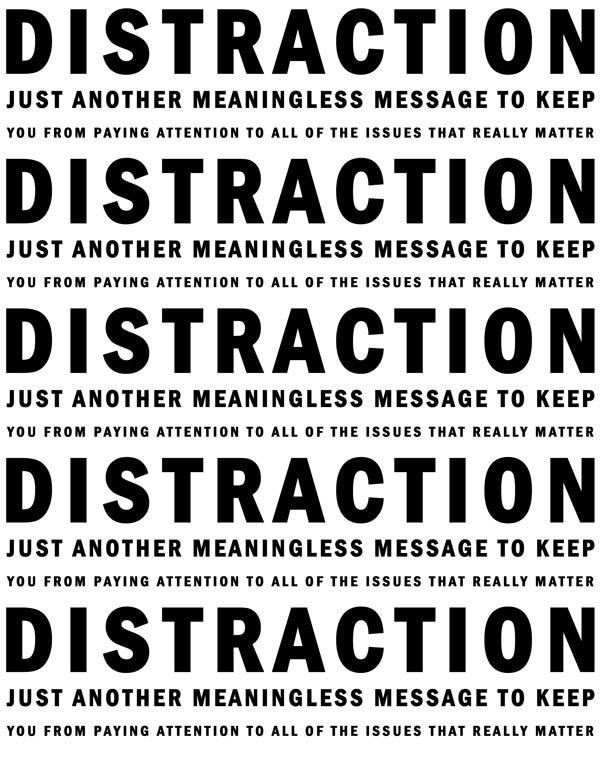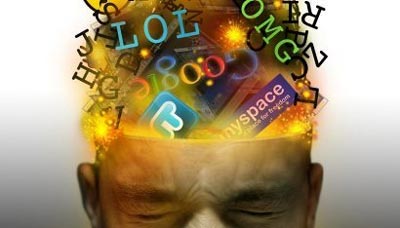Prophets and wise men sought isolation and practiced contemplation. But this practice seems to be all but lost in the modern world, with people craving, and even becoming addicted to, distractions.
It is hard to escape technology in the digital age. Most of us don’t want to. After all, we can do amazing things with our computers: we can connect with people virtually anywhere in the world, keep in touch with our friends and family at all times, find our way in a new city, get the latest news, and even do the shopping.
There isn’t a dull moment in our lives because our smartphones provide us with constant entertainment. You can watch a video, read the news or check your Facebook feed while waiting for the kettle to boil or while riding a bus.
The problems start when we find it difficult to confront our own thoughts when we find ourselves deprived of the distractions of the virtual world. Or when our relationships with online friends and followers erode our real-life relationships. Or when overreliance on search engines and satellite navigation results in the loss of basic skills, like being unable to remember a short shopping list or to use a map. Or when we feel anxiety when we’re offline or away from our phones.
Outlining the problem
 In 2011, a study, led by the International Center for Media & the Public Agenda (ICMPA) at the University of Maryland in the U.S., found that college students are addicted to media, and experience anxiety and depression when unable to use the Internet.
In 2011, a study, led by the International Center for Media & the Public Agenda (ICMPA) at the University of Maryland in the U.S., found that college students are addicted to media, and experience anxiety and depression when unable to use the Internet.
Around 1,000 students in ten countries on five continents were asked to give up all media for 24 hours and record their experience of media abstinence.
The study found that “students were blind-sided by how much media have come to dominate their lives. They had thought of media as just a convenience; a way to communicate with friends and get news. After going without media, they came to recognize that they literally construct their identities through media. Going unplugged, therefore, was like losing part of themselves.”
More recent research into smartphone addiction, conducted by psychologist Zaheer Hussain from the University of Derby in the UK, concluded that smartphone overuse leads to psychological disorders.
“There are various smartphone apps such as Facebook, Twitter, Instagram and Candy Crush, as well as Skype and e-mail, that make smartphone use psychologically more attractive and can lead to addiction,” says Hussain.
“Higher scores of narcissism (excessive interest or admiration of oneself and one’s physical appearance) and levels of neuroticism (negative personality traits including moodiness, jealousy, envy and loneliness) were linked to smartphone addiction. A significant positive relationship was found between narcissism and addiction to the phones, suggesting that the more narcissistic a person is, the more likely they are to be addicted to their smartphone. When the participants were asked if they used their phone in banned areas, 35% answered yes,” he explains.
The study found that 13% of its participants were addicted to their devices, and that the average time users spend looking at smartphone screens is 3.6 hours a day. The study also recommends that smartphones should come with a warning of the potential risk of addiction.
Multitasker or distracted?
 According to Alex Soojung-Kim Pang, author of the book “The Distraction Addiction: Getting the Information You Need and the Communication You Want, Without Enraging Your Family, Annoying Your Colleagues, and Destroying Your Soul”, one of the biggest dangers of smart devices is that they are designed for switch-tasking.
According to Alex Soojung-Kim Pang, author of the book “The Distraction Addiction: Getting the Information You Need and the Communication You Want, Without Enraging Your Family, Annoying Your Colleagues, and Destroying Your Soul”, one of the biggest dangers of smart devices is that they are designed for switch-tasking.
Switch-tasking is what many people believe is multitasking. Multitasking, however, is managing a few activities that lead to a single goal: for example writing an essay while searching for relevant quotes in books. Switch-tasking, on the other hand, is allowing yourself to be interrupted with distractions: for example writing an essay and checking your Facebook account.
Pang says, “When you’re constantly interrupted by external things — the phone, texts, people with ‘just one quick question’, clients, children — by self-generated interruptions, or by your own efforts to multitask and juggle several tasks at once, the chronic distractions erode your sense of having control of your life. They don’t just derail your train of thought. They make you lose yourself.”
Switch-tasking makes you less effective, less creative and can even be dangerous, like when you occupy yourself with your phone while driving. But the buzz of constant news can be exciting and addicting, and switch-taskers believe they are great multitaskers, while the opposite is true.
“And some troubling data suggests that people who are heavy digital switch-taskers have a harder time than others concentrating for longer periods. Once the brain becomes accustomed to having multiple inputs and distractions, it’s difficult for it to settle down and do a single complex task,” writes Pang in his book.
Are we losing ourselves in a world saturated with distractions? Is it even possible to use media in a good way?
Pang advocates mindful computing. That is, using media with a purpose and caution. But this does not come easily when we have programmed ourselves to check the phone anytime, anywhere.